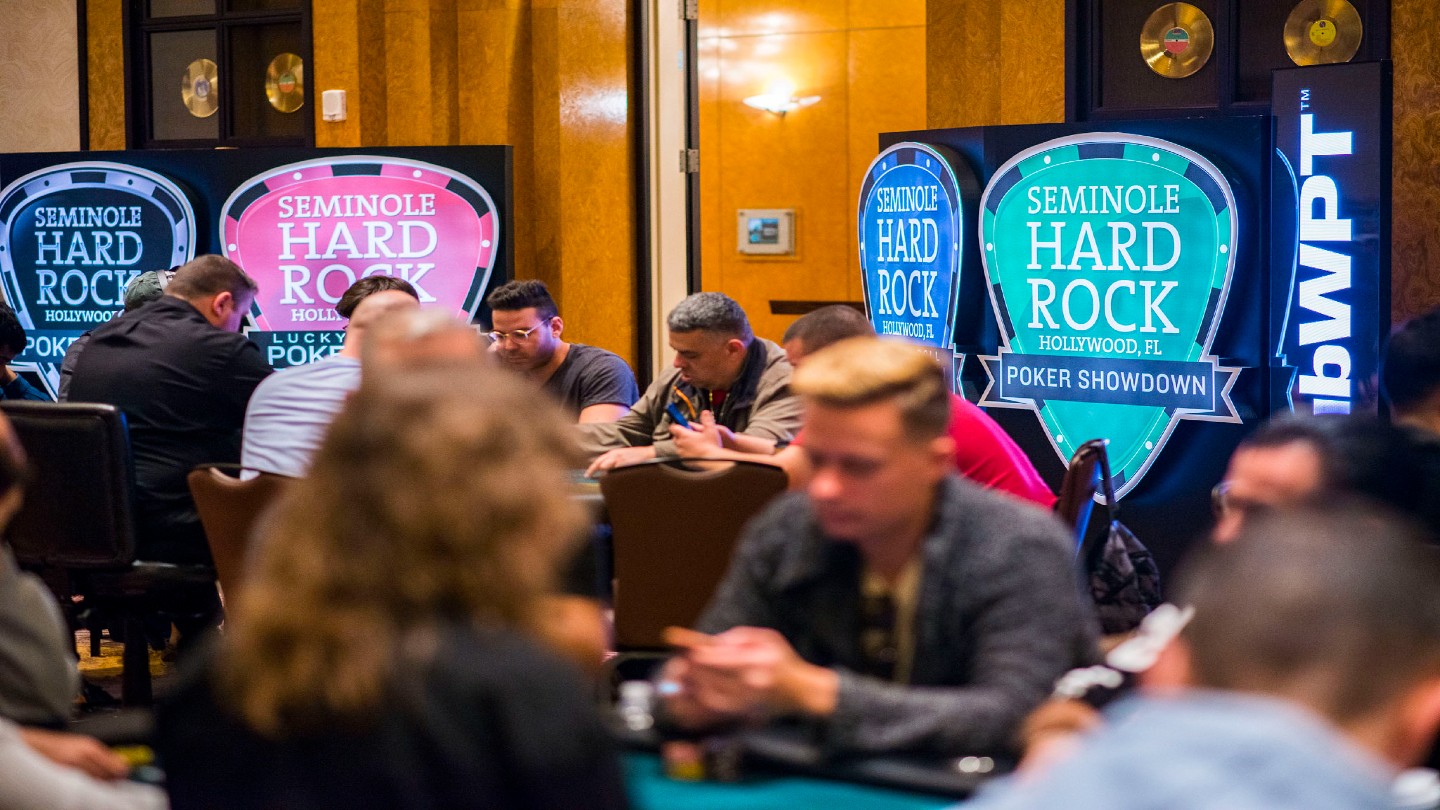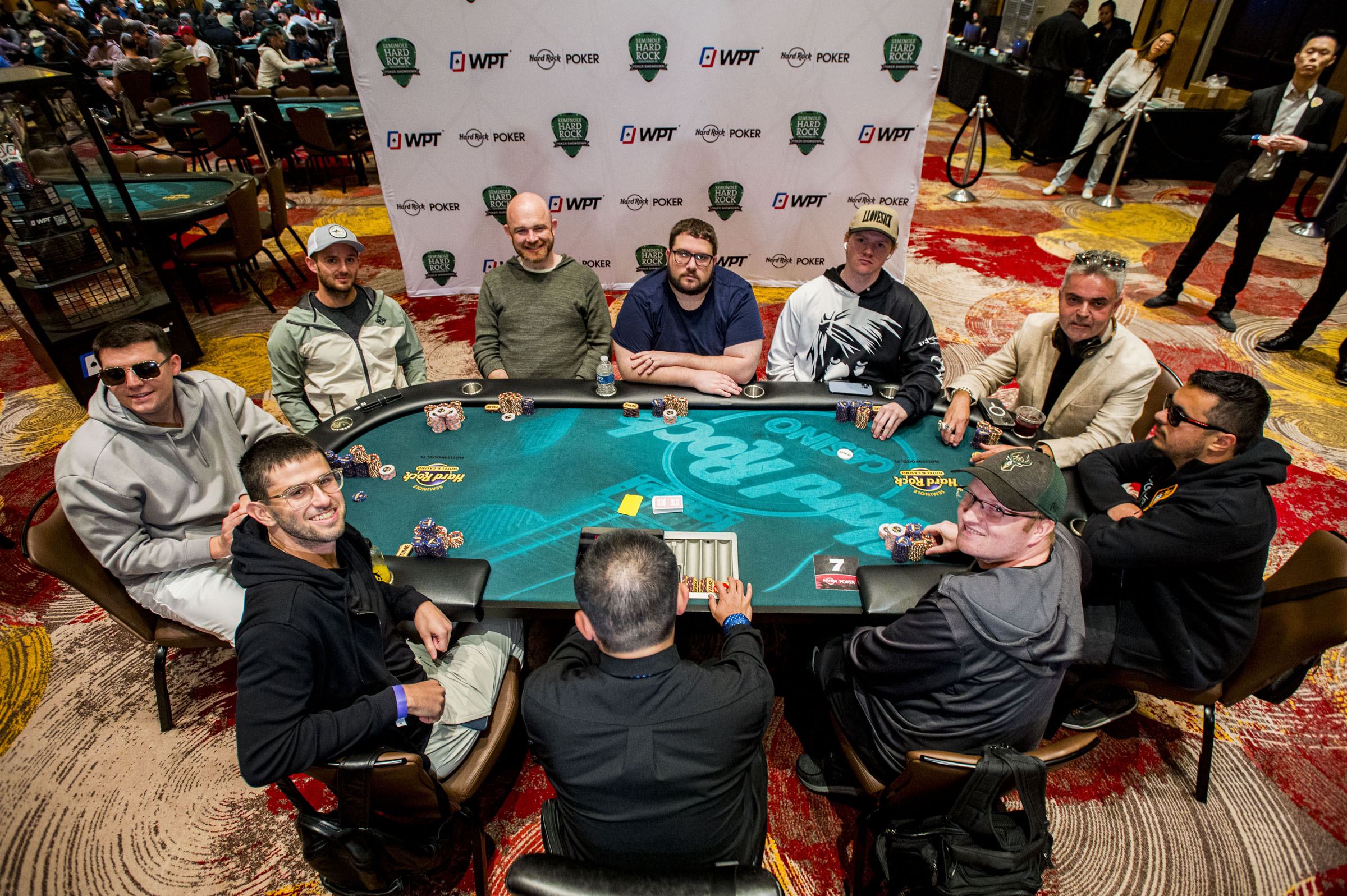Credit Card Roulette: How to Play & Should You Do It?
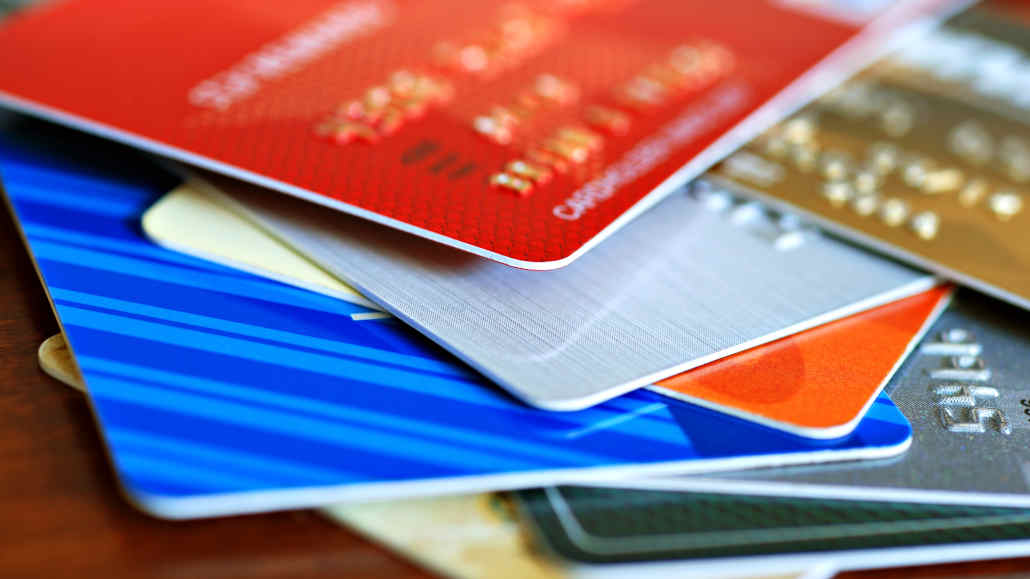
9 minutes
Last Updated: April 15, 2022
Nights out with friends can be incredibly exciting and fun, but the moment that sometimes ruins it is when the server brings the bill.
For the most part, people are OK with paying their fair share of what’s owed. That said, there are certainly individuals who often try to weasel their way out of paying up when the time comes.
Every group is different, and there are different agreements and deals in place in various situations.
Sometimes one person promises to pay the whole bill, while in others, everyone just pitches in whatever they feel is fair.
There is no perfect way to pay large bills in restaurants or nightclubs other than everyone paying for exactly what they had, but this can also be problematic and complicated at times.
This is why poker players sometimes use credit card roulette, a game of chance, to decide who pays the bill, putting the entire burden on just a single person in the group.
While credit card roulette is definitely a game you should only play with people who consent to it, it can be an incredibly fun way to make a great night even better.
But what exactly is credit card roulette, should you do it, and when?
I take a close look at the game and try to explain it in the simplest terms possible so you can play it with your friends the next time you hit the town.
How Do I Play Credit Card Roulette?
Credit card roulette is an incredibly simple game of chance that is used in restaurants or clubs to decide who pays the bill.
Every person in the group produces a credit or a debit card for the purpose of the game, and these cards are all put into a hat or the billfold before the server is asked to come over.
Then, you simply ask the server to pick any one of the cards in there and charge the whole bill to it.
Of course, you should also make sure that the server immediately tells you whose card he pulled out and give the others back.
Alternatively, you can play a slightly more complicated version of the game, where the server is asked to pick the cards one by one, giving them back to their owners until only one is left.
The remaining card in the hat pays the entire bill, while everyone else goes home with a free meal and a great story.

One thing to note is that if you are going to make the server be the one picking cards and taking part in your shenanigans, you should make sure to tip them well (and I’m not talking about poker tips).
That's really it. All the rules of credit card roulette are summed up right there, making it one of the simplest, although potentially most costly games of chance out there.
Where Does Credit Card Roulette Come From?
There is no clear indication as to when credit card roulette was first invented or how it came to be played by so many people around the world.
Yet, some say that it was Jerry Ossip, a famous gambler, who first invented a form of credit card roulette, which he would play with a bunch of his own cards.
He would allegedly put several of his cards in a hat, one of which was canceled. He would then ask the server to pick a card, explaining that one card was canceled.
If the server picked any one of the working cards, they would receive a generous tip. If they selected the canceled card, the meal would be on them.
I am not sure how many waiters would accept to play this game with Ossip these days, but apparently, he invented it back in the 60s.
The game made a big growth in popularity over the last two decades, as a number of young people who love to party and spend big came to Las Vegas, making millions playing poker.
It was these groups of poker players who popularized credit card roulette further and who “invented” the versions of the game that are being played these days.
When Should I Play Credit Card Roulette?
Credit card roulette is a game of chance, and only people who generally gamble and aren't averse to risks can fully appreciate it.
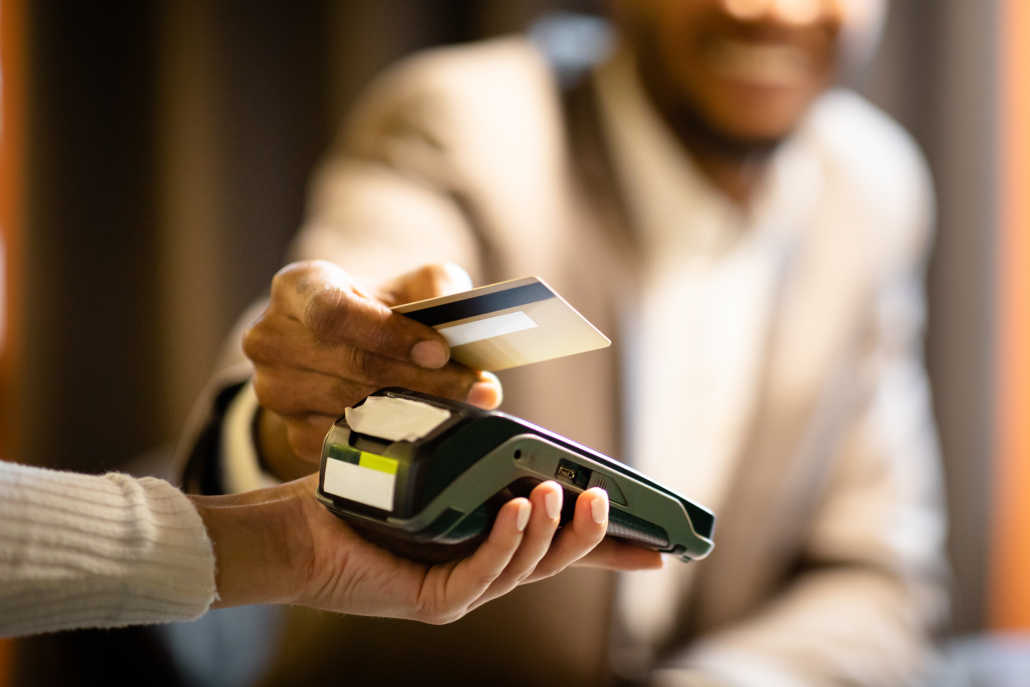
This is exactly why there is a time and place to play credit card roulette, as well as plenty of other times and places when the game should not be brought up at all.
For the most part, the game is played by professional poker players and gamblers when trying to settle checks on nights out with friends.
This means everyone in the group should be a part of the same “world” and a gambler in some sense.
In social situations with mixed groups, it’s best to avoid credit card roulette. You can try to explain it to your non-poker friends, but I would avoid trying to pressure them into playing.
In groups of “normal” people, where most are not gamblers, you should absolutely avoid talking about credit card roulette and not try to force people into gambling when it's not something they are comfortable with.
Keep in mind that trying to bring gambling into your everyday life like this can be considered a serious show of degeneracy on your part among people who are not gamblers in the first place.
I would also advise you don't bring up credit card roulette with your family or girlfriends, especially in more serious situations such as business lunches or meetings.
A game of credit card roulette is best suited to play with other poker players during poker tournaments, festivals, or when you all get together to have dinner or hit the town as a group of people with shared interests.
5 Tips for Playing Credit Card Roulette
If you are going to play credit card roulette, there are some things you should be aware of and some basic rules that you should adhere to.
Here are my personal top five tips for playing credit card roulette and how you should approach it:
1. Be Ready to Pay
Credit card roulette is just a game, and in reality, there won't be anyone around to force you to pay the entire bill if you end up being the loser.
There have been instances of people playing the game but being unwilling to pay when they get chosen, which is a major breach of gambling etiquette.
If you play credit card roulette, you should be aware that there is a chance you will have to pay up, and trying to weasel out when you lose is absolutely shameful.
Just think about the fact that you are effectively trying to defraud your friends with this move, and things become very clear.
If you can’t afford to pay the bill, talk to your friends about it beforehand, or have someone help you out in the short term if you will have the money soon. Just don’t cheat!
2. Be Mindful
No matter the company, excluding the extreme high-rollers, there will always be people in groups who have more or fewer funds available to them.
If you go out with your friends to an expensive place, you should be mindful of what you order and just how crazy you go.
Some orders simply don't make sense, and even if you are willing to gamble for thousands of dollars at a time, some of your friends might not be.
You should be aware of who is in the group and approximately what makes sense for everyone. If you aren't exactly sure, you should ask and try to be subtle about it.
3. Don’t Be a Douche
Poker players are certainly not known as the most humble group of people out there, but this still doesn't give you a free pass to be an absolute douche.
Playing credit card roulette is fun and games for you and your friends, but it doesn’t need to become an affair that the entire restaurant is involved in.
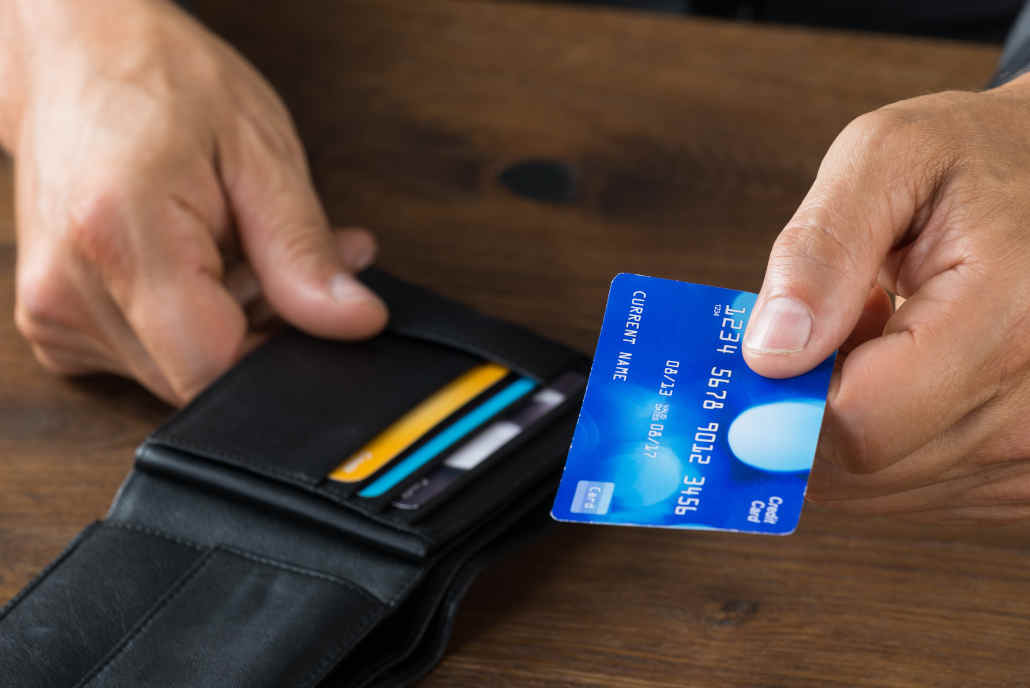
Don’t be too loud or make too big of a fuss about paying the bill if you lose. Make sure to treat your server right, tip well, and try to get their help with the game without being rude about it.
There is really nothing that gets people rolling their eyes in restaurants than a group of men being loud and rude for no particular reason, so make sure you are not that group.
4. Know the Stakes
From a more strategic point of view, you should be aware of exactly what’s at stake, how big the bill is going to be (approximately), and what your odds are.
In larger groups, you will have a lower chance of having to pay but also a smaller bill to pay for. In a small group, your odds will be substantially worse.
Credit card roulette is often a spur of the moment thing, and you don’t really have to agree to play it if you don’t want to.
Knowing the odds that you will have to pay and the approximate size of the bill can help you decide if you want to play the game or simply pay like everyone else does.
5. Don’t Peer Pressure (Too Much)
This game is meant to be fun and enjoyable for everyone involved, which means that it should be played with people who can afford it, are happy to gamble, and don't really care if they win or lose.
You don’t want to turn a fun night out into a contest on who is the bigger degenerate in your group. If someone says they don’t want to play, don’t try to force them into it.
You should understand that some people can't afford to play at that particular moment. Others might simply be sick of gambling for some time and don't want to gamble even on their night out.
Some people, poker players even, really don’t enjoy gambling at all. After all, poker is a game of skill, and taking a calculated risk at the poker table is not the same as gambling to see who pays for dinner for no apparent reason.
Final Thoughts on Credit Card Roulette
Credit card roulette is a very fun game you get to play with your poker friends, but one you should avoid trying to play with people who don’t gamble.
If you haven't tried it before, I recommend bringing up the idea the next time you are playing poker with your friends or your poker friends invite you out for dinner or drinks.
This can definitely add some extra flair to a night out, and if your friends are all relaxed about money and love to gamble, everyone should go home happy.
The little pain that one person will experience should not be too bad because someone else gets to pay the next time, provided that the variance doesn't hit one person too bad, which we all know can happen.
This is exactly what makes credit card roulette so fun, so enjoy playing, and let us know how you and your friends did the next time you play!








